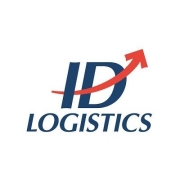eCommerce Platforms streamline online retail operations, offering businesses tools to manage inventory, process payments, and improve customer experience seamlessly.
These platforms empower enterprises with comprehensive solutions that integrate with CRM and ERP systems, promoting improved data analysis and customer interaction. Key functionalities often include marketing automation, logistics management, and secure checkout options. Solutions also emphasize scalability to support businesses of all sizes as they grow. Users widely recognize the flexibility in customization and ease of integration with other technologies.
What are the critical features of eCommerce Platforms?In retail, eCommerce Platforms cater to diverse industries including fashion, electronics, and groceries, each adapting to its unique needs. For instance, fashion retailers benefit from high-quality templates, whereas electronics businesses prioritize detailed product information and specifications. Grocery services focus on logistics and timely deliveries, facilitated by the platform's robust supply chain features.
eCommerce Platforms are essential for organizations looking to maintain a competitive edge in the digital marketplace. They provide a robust infrastructure that simplifies complex operations, allowing businesses to focus on strategic growth and customer satisfaction.
| Product | Market Share (%) |
|---|---|
| Adobe Commerce | 6.9% |
| SAP Commerce Cloud | 6.4% |
| Salesforce Commerce Cloud | 5.8% |
| Other | 80.9% |

































































































Every eCommerce seller should have an ecommerce platform to sell online. Not only does having your own website diversify your online presence, but it protects your brand from being at the mercy of any single marketplace, and will give you the opportunity to increase profit margins and conversions.
Having an ecommerce platform to sell your goods or services will also help you grow your customer base and further strengthen your brand. Beyond that, eCommerce platforms offer multiple advantages, such as an omni-channel experience with reduced risk, and increased marketing opportunities.
Some of the biggest benefits of using an eCommerce platform to sell online are that it helps your customers engage with your brand to get the products they need, it ensures your employees have the tools to properly execute sales and marketing strategies, and it protects your bottom line in terms of sales growth, in addition to the cost of maintenance and installation. What’s more is you can reduce costs per sale by having your own online store, benefit from private labeling, and gain the freedom to sell wherever your customers are.
Essentially, eCommerce platforms ensure scalable, long-term growth. In addition, they give you full control of your own site, making it easier to manage all aspects of it, help you with marketing and sales efforts, and also help operations run more smoothly.
Integrated eCommerce is the integration between an eCommerce website and its backend systems, such as a CRM system or an ERP system. With eCommerce integrations, the need to manually enter the same information (such as inventory counts) into more than one system (ERP systems and eCommerce applications) is eliminated. As brick-and-mortar stores become less critical and companies embrace online sales, the need for eCommerce integration is steadily increasing.
Integrating an eCommerce website is fairly simple. Essentially, there are three ways to integrate a given eCommerce platform:
Some of the top benefits of using a fully integrated eCommerce platform include:
Features to look for when choosing an eCommerce platform include:
When evaluating eCommerce Platforms, consider features like user-friendly interfaces, customizable templates, payment gateway integrations, seamless inventory management, and robust security measures. You should also look for platforms offering scalable solutions that can grow with your business, along with mobile optimization and SEO-friendly tools to boost your store’s visibility.
How do you choose the best eCommerce Platform for your business?To select the best eCommerce Platform, assess your business needs regarding budget, product variety, and target audience. Compare platform functionalities, customer support services, integration capabilities, and feedback from other users. You should also conduct trials when possible to ensure the platform meets your specific operational requirements.
How can eCommerce Platforms enhance customer experience?eCommerce Platforms can significantly improve customer experience by offering features like intuitive navigation, personalized product recommendations, and efficient checkout processes. You can utilize customer reviews and ratings to build trust and loyalty. The integration of chatbots and real-time customer support can also aid in resolving queries promptly, enhancing overall satisfaction.
What role does SEO play in eCommerce Platform success?SEO is crucial for the success of eCommerce Platforms as it directly impacts your store’s visibility on search engines. With well-optimized product descriptions, titles, and metadata, you can attract more organic traffic. Implementing strategies like keyword research, mobile optimization, and fast loading speeds can help improve your search engine ranking, increasing potential sales.
Why is mobile optimization important for eCommerce Platforms?Mobile optimization is essential for eCommerce Platforms because a significant portion of online shopping occurs on mobile devices. A mobile-optimized store ensures a seamless user experience, with easy navigation, quick loading times, and responsive design across various devices. It helps in lowering bounce rates and enhancing customer engagement, ultimately boosting sales and conversion rates.